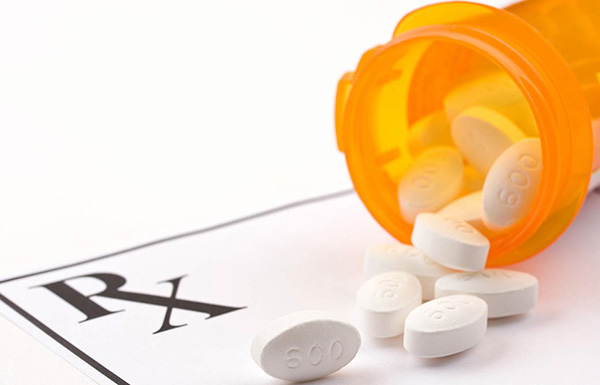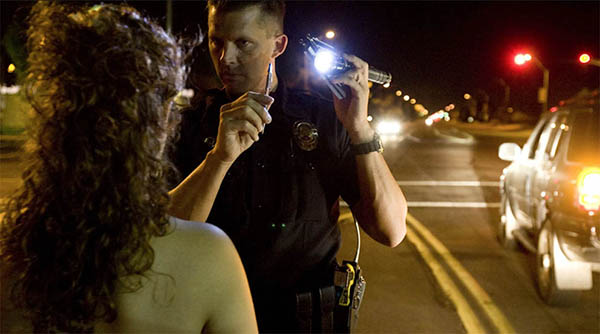Prescription Drug DUI
Prescription Drug DUI in Arizona: A.R.S. 1381(A)(1) and A.R.S. 1381(A)(3)
People are often surprised to learn they can be prosecuted for DUI for their legally prescribed medication. Arizona drivers, properly following doctor’s orders, are arrested by police, who tell them their doctor is wrong and they’re driving impaired. So while doctors frequently provide medications to improve our physical and cognitive well-being, Arizona will prosecute us for taking medication simply because an officer suspects impairment.

This is problematic because we increasingly rely on our medical professionals to diagnose and treat a variety of conditions. Mainstream medical surveys show that 7 out of 10 Americans take daily prescriptions; furthermore, 2 out of 10 Americans are taking more than 4 medical prescriptions. And many pharmaceutical drugs don’t actually diminish or impair driving; they often improve driving. Everyone’s body-chemistry and medical needs are different. Prescription drugs have a wide range of therapeutic and toxic effects depending on the person’s use, chemistry, and interaction with other substances.
There Are Two Misdemeanor Prescription Drug DUI Charges in Arizona:
- Impairment to the Slightest Degree under A.R.S. 1381(A)(1), which makes it illegal to drive while impaired by any drug or alcohol, or combination thereof. This is Arizona’s zero tolerance DUI charge. It strictly prohibits driving under the influence of any alcohol or drug—legal or not—prescribed or not.
- Driving with an Illegal Drug in one’s Body under A.R.S. § 28-1381(A)(3), which makes it illegal to drive with any street drug, or non-prescribed prescription drug. Illegal drugs include street drugs like cocaine, marijuana, and methamphetamine, as well as prescription medication that wasn’t legally prescribed to the driver. A.R.S. §28-1381 (A)(3) is a “strict liability” crime, meaning it doesn’t matter whether or not you were actually impaired by the illegal drug. The prosecutor only needs to prove that you had an illegal drug in your system—no proof of impairment is required. The only defense to this strict liability charge is if you had a valid prescription. The problem with this drugged driving statute is that the presence of illegal drugs doesn’t prove impairment. Drugs can be in our body long after their impairing properties wear off.
Prescription as a Defense to DUI Charges.
A common belief is that having a valid medical prescription will get you out of a DUI. This is only half true. In Arizona, a medical prescription is a defense to only one of the two DUI charges. To the zero tolerance charge, under 1381(A)(1), having a prescription IS NOT A DEFENSE. Arizona DUI law has zero tolerance for driving while impaired by any drug—prescription or not. Nevertheless, a valid prescription IS A DEFENSE to the drugged driving charge under 1381(A)(3). That’s because a lawfully prescribed drug is not illegal under Arizona law. You can have prescription medication in your body so long as it doesn’t impair your driving.
Thus, when a driver only has medically prescribed drugs in the body, the government should only prosecute on the allegation that legally prescribed drugs impaired the driver under A.R.S. 1381(A)(1).
How do Police Identify and Test Suspected Drugged Drivers?
Unlike an alcohol test, which measures BAC levels and correlated levels of impairment, a drug test cannot conclusively tell us whether a driver was impaired. A drug test only estimates how much drug was in our system based on a sample of blood or urine. As such, we’re often left with an officer’s biased and subjective testimony; that he believed the driver was impaired based on non-medical observations.

To combat this shortcoming in prosecuting drug impairment cases, law enforcement created its own way to test impairment: police departments have drug recognition programs, whereby they appoint officers as drug recognition experts (DREs). These supposed experts have taken a brief law enforcement class and exam that “certifies” them to recognize drug use and impairment. These DREs are called out to DUI investigations to examine drugged driving suspects. DREs will employ a battery of tests to conclude the following: (1) whether the driver is impaired; (2) whether the impairment relates to drugs or a medical condition; and, (3) what types of drugs are causing impairment. There’s no outside scientific studies or entities to support law enforcement’s self-appointed experts; it’s only supported by their own biased studies, tests, and programs.
A major problem with DRE officers is that they’re biased with minimal training; they almost never admit mistakes, even when chemical tests show that they’re wrong. Once they suspect impairment, based on driver admissions or evidence, they’ll almost always confirm that suspicion in their DRE evaluation. For example, if a driver tells an officer he’s prescribed pills for back pain, the officer will make an arrest for drugged driving and the DRE evaluation will conclude impairment by that pain killer. This is classic confirmation bias, self-fulfilling prophesy, and avoiding cognitive dissonance. People seldom admits fault, error, or wrong doing—especially as it relates to wrongful arrests.
Penalties for Misdemeanor Prescription DUI Charges.
Although a person can theoretically be charged and convicted of both types of Prescription Drugged Driving, only one sentence can be imposed by the Judge. In such a case, the most severe mandatory minimum penalty applies.
Maximum Penalties for Prescription Drugs DUI under A.R.S. 28-1381(A)(1) and 28-1381(A)(3):
- Jail: 180 days
- Fines: Approximately $4,600.00 in fines
- Driver’s License: 90 day license suspension (no driving first 30 days / restricted driving last 60 days).
- Probation: 5 years
- Interlock Device: 6 to 12 months, but only if specifically ordered by the Judge
- Counseling: Alcohol/Drug Screening and Classes
- Community Service
- MVD Points: 8 points and Traffic Survival School.
- Insurance: Obtain SR-22 Insurance Policy for up to 3 years
Mandatory Minimum Penalties for Prescription Drugs DUI under ARS 28-1381(A)(1) and 28-1381(A)(3):
- Jail: 10 days, but as little one day jail, if your DUI attorney successfully plea bargains for a suspended jail sentence with proof to the Court that you successfully completed an alcohol/drug assessment and classes.
- Fines: Approximately $1,500.00 to 1,700.00 depending on which court you are in front of.
- Driver’s License: 90 day driver’s license suspension (no driving first 30 days / restricted driving last 60 days).
- Interlock Device: As of January 1, 2017, there’s no ignition interlock requirement; however, the Judge has discretion to add this requirement. If the Judge elects to order an ignition interlock device, it can be for as little as 6 months. You must comply with all interlock device requirements, including compliance with routine device maintenance and never blowing a positive alcohol reading into the interlock device.
- MVD Points: 8 points and Traffic Survival School.
- Insurance: Obtain SR-22 Insurance Policy for up to 3 years (Can Sometimes be Avoided)
Mandatory Minimum Penalties for Prescription DUI under A.R.S. 28-1381(A)(1) and 28-1381(A)(3) IF previously convicted of any DUI offense in the past 7 years (84 months):
- Jail: 90 days, Add all but 30 consecutive days may be suspended if you show proof of completion of alcohol screening and counseling.
- Money: Approximately $5,000 in fines, fees, and jail related costs.
- Counselling: Alcohol / Drug Screening and Classes.
- Driver’s License: Driver’s license is revoked for one year; however, after the first 45 days of the revocation period, you can apply for a restricted license, which allows you to travel to and from work, school, medical, and court related appointments so long as an ignition interlock device is installed on your vehicle.
- Interlock Device: At discretion of the court
- MVD Points: 8 points to MVD Record and Traffic Survival School.
- Community Service: 30 hours community service.
- Insurance: Obtain SR-22 Insurance Policy for up to 3 years